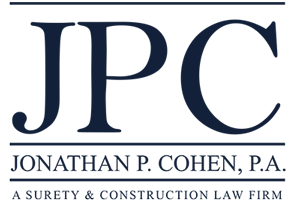New Laws Arising from Senate Bill 360
Construction defects can result in significant losses for property owners and lead to litigation and potentially sizable verdicts against construction companies. Because of this, construction contractors must ensure they adhere to the requirements of the Florida Building Code (FBC) when completing projects and promptly correct any issues when discovered. A recent bill that was signed into law by Gov. Ron DeSantis reforms multiple aspects of construction defect claims and will likely have a large impact on the industry. Here’s what to know from Florida construction lawyer Jonathan P. Cohen, Esq.
New Construction Defect Law
On April 13, 2023, Gov. Ron DeSantis signed Senate Bill 360 into law, which was effective as of July 1, 2023. This law enacted multiple changes that will affect the industry by changing when the statute of limitations begins to run and shortening the statute of repose for construction defect claims. The changes affect claims involving patent (obvious) defects and latent (hidden) defects when contractors are accused of violating provisions of the FBC.
Changes to the Statute of Limitations
The statute of limitations for patent defects remains unchanged at four years under §95.11(3), Fla. Stat. (2023). However, it effectively shortens the ultimate deadline by changing when the limitations period begins to run. Under the new law, the statute of limitations will now begin to run when the earliest of the following occurs:
- When the building official issues a temporary certificate of occupancy
- When the building official issues a certificate of occupancy
- When the building official issues a certificate of completion
- Date the contractor abandons the project if it isn’t completed
Under the previous law, the statute of limitations for construction defect claims for patent defects didn’t start to run until the latest-occurring of the above-listed events or when the owner possessed the property. Now, the date of possession has been removed as a starting date for the limitations period. This will effectively shorten the time for filing a claim since the clock will now start to run from the date of the earliest of the above-listed events and not from the date the owner takes possession.
Changes to the Statute of Repose
The statute of repose sets a final deadline for construction defect claims that could not reasonably be discovered until a later time, which are known as latent defects. These are claims based on a building’s planning, design, or improvements. The statute of repose is found in §95.11(3), Fla. Stat. (2023) and has been shortened from 10 years to seven years. Similar to the changes to the statute of limitations, the changes to the statute of repose also include a modification of the date the deadline clock begins to run from the latest to the earliest of the previously listed events (issuance of a temporary or permanent certificate of occupancy, certificate of completion, or project abandonment).
Changes for Model Homes and Multi-Unit Residential Buildings
If a claim involves a model home for a planned community, the statute of limitations will start to run for the model home on the date its title is first transferred to a new property owner. Buildings constructed in multi-building community development projects or HOAs will now each be considered a separate project for statute of limitations purposes. This means that the statute of limitations might differ for people who purchased units later than those who purchased them earlier.
Material Violations of the Florida Building Code
In civil actions filed against builders for alleged violations of the Florida Building Code, damages will be limited to material violations alone. The law defines material violations as including violations of the FBC that exist in a completed building that could reasonably and foreseeable cause physical injury to a person or substantial damage to the building’s performance or its systems.
Savings Clause
Senate Bill 360 includes a savings clause for defect claims filed on or after July 1, 2023. Claims that wouldn’t have been time-barred by the statutes of limitation or repose before that date but would under the new law can be filed, but they must be filed before July 1, 2024. This means a potential claimant who still has time left under the old statute of limitations or repose will have until July 1, 2024, to file actions. If they don’t file their actions by that date, and the current statute of limitations means the deadline clock would have otherwise already run out, their claims will be time-barred.
Consult Florida Construction Lawyer Jonathan P. Cohen, Esq.
Property owners and construction companies alike should be aware of the statutory changes made by Senate Bill 360 and their potential impact. Property owners dealing with construction defects might want to consult a construction lawyer at the law firm of Jonathan P. Cohen, P.A. to learn about the impact of the statutes of limitation and/or repose on their ability to file an action and when it should be initiated. Construction companies should determine whether they might raise a statute of limitations defense if a defect claim is filed against them. Contact the law firm of Jonathan P. Cohen, P.A. to schedule a consultation by calling (954) 462-8850.
The information provided in this article does not and is not intended to, constitute legal advice. The content in this article is presented for general informational purposes only.

